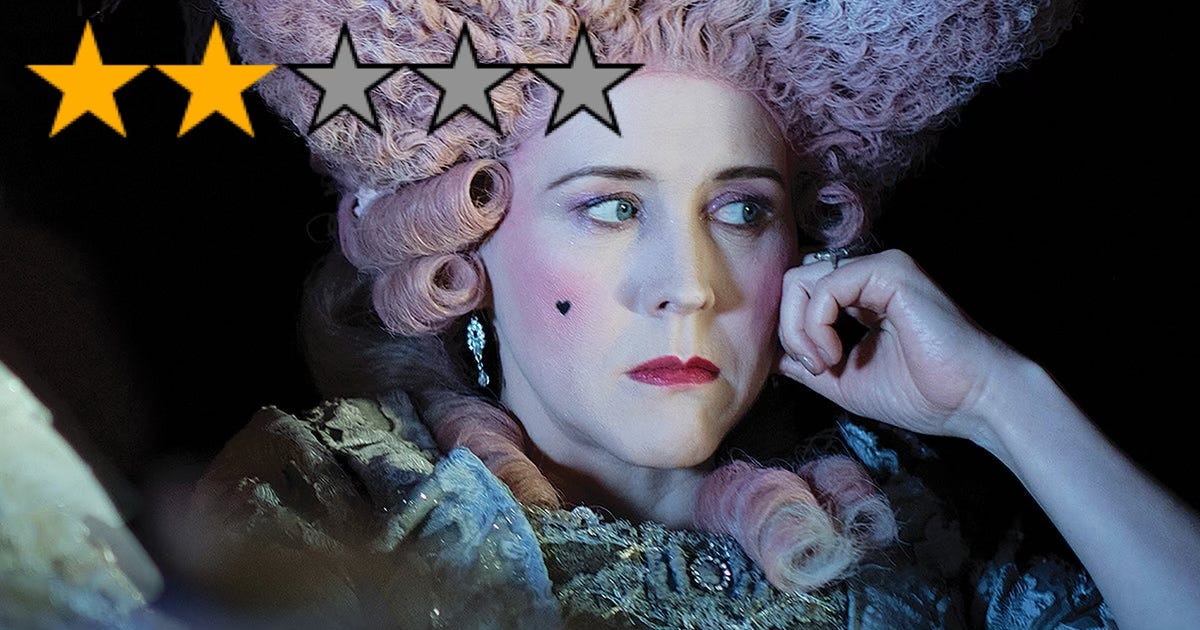Film Review - Timestalker
A whimsical tale of love, death and reincarnation that ultimately lacks heart.
The biggest compliment I can pay to Alice Lowe’s Timestalker is that it’s really weird. It’s 18th century noblewoman with her pet cat dyed pink weird. Victorian Lord barking like a dog weird. Decapitation by a slow moving horse and carriage weird. It’s a non-stop barrage of absurd jokes and gory humour, in which protagonist Agnes (Lowe) is repeatedly and uncontrollably drawn to Alex (Aneurin Barnard) as they are reincarnated into a series of whacky lives over the course of five centuries. The zany, deadpan humour is often funny, the costumes are impressive, but when the jokes fall flat, the bare-bones plot and shallow characters struggle to support the film.
The premise is simple yet compelling. Agnes, a Scottish weaver living in 1688, is so enamoured with the preaching of religious outlaw Alex that she promises to find him in the next life as she lies dying after falling face-first onto an axe. Her subsequent incarnations do find him, again and again. Whether she’s living lavishly in a British countryside mansion in 1793, or scraping by in a small New York apartment in 1980, Agnes’s pursuit of Alex always ends in disaster. Every time they meet, she sacrifices herself so that he can live. It looks to subvert the classic rom-com, fairytale movie cliche, making it more Grimm Brothers than Disney.
The premise is very similar to Bertrand Bonello’s recent century-spanning sci-fi epic The Beast, which also explores the struggle of love between two people inexplicably drawn together. But the tone couldn’t be more different. Timestalker goes all in on humour and has some genuinely funny moments, especially during the 1793 section towards the start of the film. There was an excellent exchange of quick quips between Agnes and her maid Meg (Tanya Reynolds), and a sequence based around an impressive heart-shaped wig that looked more like a bum was met with laughs. Underlying the barrage of banter are some interesting themes - around the danger of obsession and the historical portrayal of women as hopeless romantics, willing to settle for anyone with their own teeth and a driving license.
But, disappointingly, these themes are never developed. Instead, everything is played for laughs. This becomes a problem as the film moves towards the end of its 90 minute run time, when the weird humour starts to become overstretched and a little tiring. There are a few good moments when supporting characters return from Agnes’s past, most notably the lovestruck Meg, creepy George (Nick Frost) and insightful Scipio (Jacob Anderson), but there is nonetheless a notable drop off in comedy consistency. At times, it felt in need of a tonal change of gear, to provide a break from the relentless jokes and some depth to an interesting premise.
Timestalker is a quirky, adventurous film which never quite delivers on the promise of its central idea.



